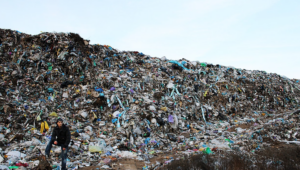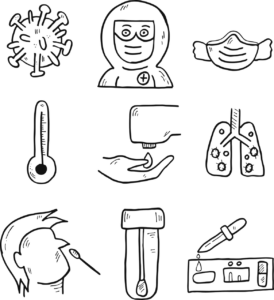Climate change as well as a plethora of environmental problems continue to plague the earth, and as teenager it can be hard to find ways to make a difference. Many of us are too young to vote for a change, and a lot of the problems just seem too big. Even so, small differences made in your lifestyle can make a large impact over time, and also inspire others to make positive changes in their life as well! Here a few changes that can make an impact over time.
- Reduce the Use of Plastic
Plastic is very normalized part of society, but it is becoming a massive problem. According to National Geographic, 91% of plastic is not recycled. The single use variety is the worst, since recycling is usually not an option, and there is often no way to reuse that plastic. That means a large amount end up in the ocean, about 8 million tons a year, according to Plastic Oceans.org. Luckily, there are ways to combat this. Try starting with a reusable water bottle, and gradually switch things in your life to more eco friendly products. There is a large market for these products today, where you can find anything from reusable produce bags, to bamboo toothbrushes, to shampoo bars without the plastic bottle.
2. Look Into More Sustainable Food Choices
While meat and dairy products are a common part of the stereotypical American diet, these foods are not helping the environment. PETA claims that “Globally, animal agriculture is responsible for more greenhouse gases than all the world’s transportation systems combined” Greenhouse gases are an increasing issue of global concern, and one way to help stop their increase is through plant based diets. According to Science Magazine, a new study found that a nation of 320 million vegans would reduce greenhouse gas emissions from agriculture by 28%. Plant based diets are growing in popularity, now at the grocery store you can find a multitude of meat substitutes, coconut based ice cream, almond milk coffee creamer, and much more. Even switching a couple foods to plant based ones can have a positive impact!
3. Reuse and Recycle As Much As Possible
It can be tempting to just throw things out with no thought of recycling or reusing that product, but there are much better ways to deal with products. Recycling is an important step, but one that is often forgotten. According to Do Something.org “The EPA estimates that 75% of the American waste stream is recyclable, but we only recycle about 30% of it.” If you just have a trash can in your room, try taking an empty box or another trash can and just put recyclables in it. We can all be lazy and forget to recycle, but if you put something right next to your trash can for recyclables, it’s an easy way to remember to do the right thing. We often overlook the capability of reuse for many products too. Do you have plastic grocery bags that were going in the trash? Instead, use them as trash can liners, a garbage bag for your car, or even wrap extra shoes in one when travelling.
4. Reduce the Use of Paper Products
Products such as paper plates, toilet paper, paper towels, napkins, and tissues have become a normal part of life for many families. They are convenient, pretty inexpensive, and make clean up easy, but this takes a toll on the environment. Paper and pulp is the third largest industrial polluter of air, water, and soil, according to The World Counts. To combat this, first try using reusable plates and napkins, or look for products made out of recycled materials. The use of paper at school can be unavoidable at times though. Students often have little control over how many papers they get. While this can be frustrating, you can still make a difference by taking notes online whenever you are allowed to, or use other online resources that don’t require a print out. Make sure to recycle the paper products that can be recycled too!







Be First to Comment